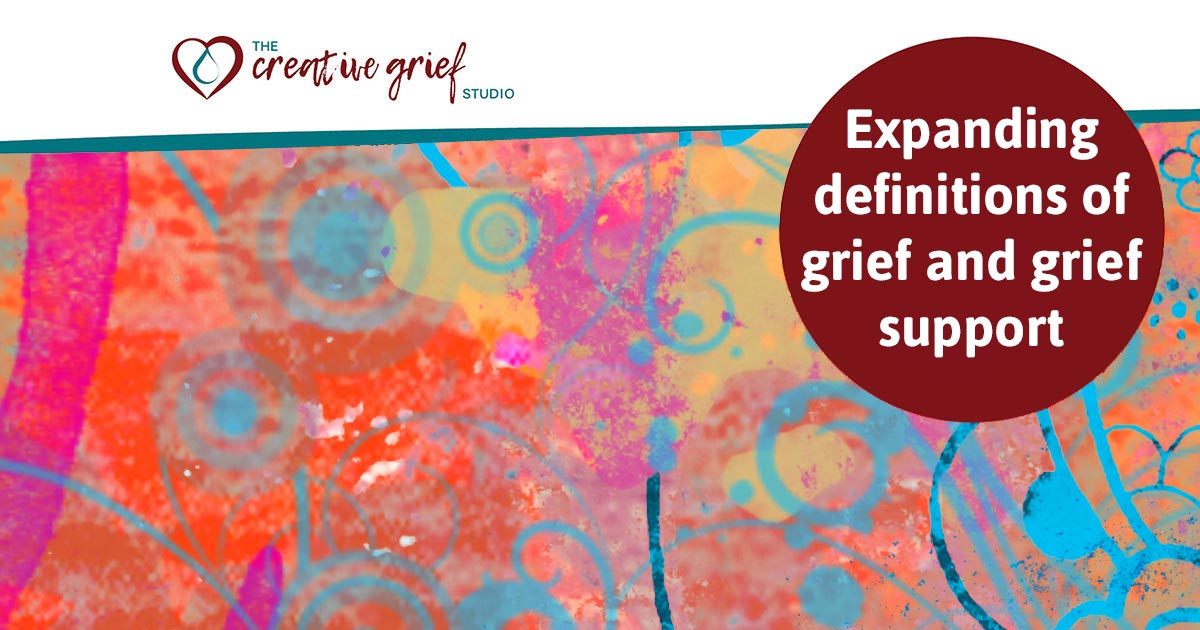Grief can be a part of the experience of so many different kinds of losses, not just the death of a loved one. And yet, very few other kinds of losses are ever validated in our society, and we don’t really have social rituals for them, sympathy cards, or support services. The lack of social validation can make the grief experience much more difficult for people who are experiencing these “non-death” kinds of losses.
In our Certification in Creative Grief Support, we include discussions about a wide range of different kinds of losses. We want to see grief support practitioners who recognise and offer relevant, flexible support for a wide range of different kinds of losses, because we believe that all grief is valid, and all people are worthy of grief support.
Grief Support Literature on Non-Death Loss
We’ve gone searching in the grief support literature for research about non-death types of loss, and we’ve generated ideas from our own practice and personal experiences. Here’s an expanded list of some kinds of losses that can bring on significant grief:
- Cultural bereavement is “the loss of one’s social structure and culture” (Bhugra & Becker, 2005).
- Grief over our deteriorating environment and extinction of species is often referred to as “environmental grief” (Kevorkian, 2012).
- “Chronic sorrow” is “pervasive and episodic grief due to losses that were living, ongoing, and usually disenfranchised, and that did not lend themselves to resolution or integration in the same way that many losses with finality do” (Boss, et al., 2011, pp. 165). This terms was first used to describe the grief experienced by parents of children with developmental impairments.
- “Ambiguous loss” refers to two kinds of losses that are ongoing and typically go unrecognised as sources of grief. In the first kind of ambiguous loss, a loved one might be physically absent but psychologically present because their status as dead or alive is unclear, for example in the case of a missing person or kidnapping or abandonment. In the second kind of ambiguous loss, a loved one is psychologically absent but physically present, for example in the case of traumatic brain injury, dementia, depression, addiction, etc (Boss, et al., 2011).
- “Nonfinite loss” refers to loss that has a continuing presence. The loss may be difficult to pinpoint and articulate, either because it is ever-present and ever-changing, or because it is not socially validated (Schultz & Harris, 2011). We think racism and poverty are good examples of nonfinite types of loss, but we’ve not found any discussion of racism or poverty in this body of literature. Generally, we see the literature on nonfinite loss discussing chronic illness and disabilities.
- Pet loss is beginning to receive more attention as a potentially devastating kind of loss (Carmack & Packman, 2011).
- Grief and trauma as a result of disasters is receiving some attention in the grief literature (Christ, et al., 2011).
- Grief after terrorism is also receiving more acknowledgement these days (Kristensen & Franco, 2011).
- Adoption loss is beginning to be more widely recognised (both for the birth family and the adoptee).
- Other losses that may trigger grief that are receiving more validation as sources of grief include adoption, fostering, chronic unemployment, degenerative health conditions in oneself or one’s partner, developmental anomalies, dislocation, refugee status, immigration, gender dysphoria, changes in sexual identity, infertility, impotence, sexual abuse, failure at an important vocation or project, emotional and physical abuse, disability in self or a significant other, disfigurement, life-threatening illness, major lifestyle changes, loss of one’s childhood as a result of caring for adults or abuse, psychiatric illness, divorce or separation, being a victim of a crime or natural disaster (Schultz & Harris, 2011).
What other kinds of non-death losses can you think of? If you know of support services that are available for these kinds of losses, let us know!

